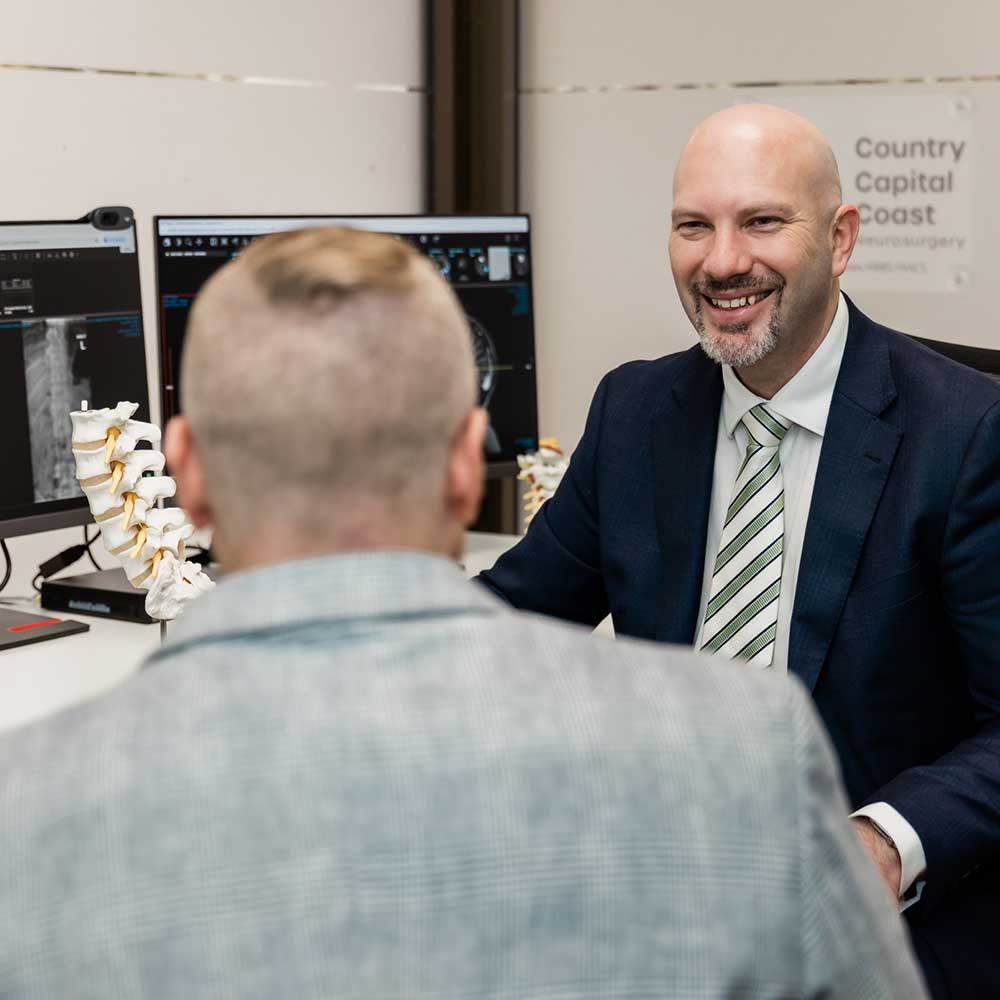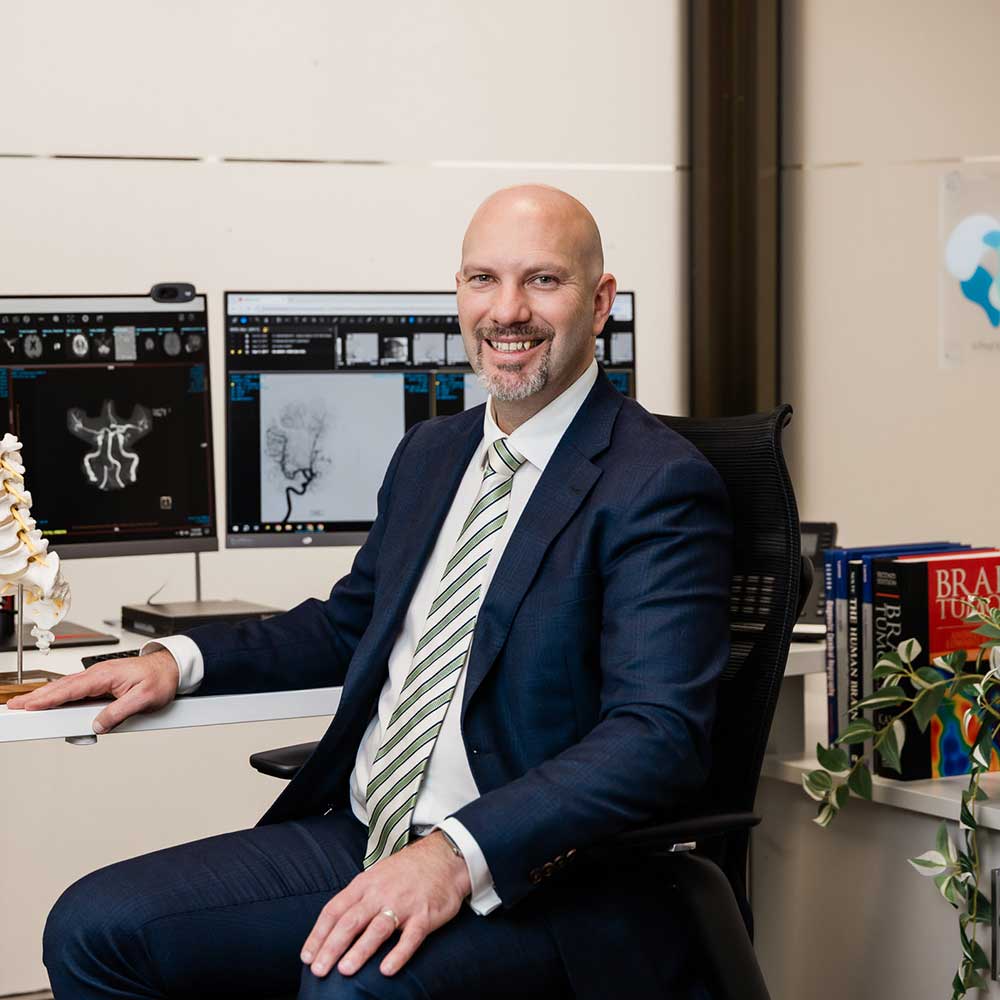MISS procedures may include minimally invasive spinal fusion, decompression for spinal stenosis, or discectomy for herniated discs.
By avoiding large muscle dissections, minimally invasive spine surgery reduces trauma to the spine’s supporting structures while still addressing conditions such as nerve compression, instability, and degenerative changes affecting the cervical, thoracic, or lumbar spine.
Conditions commonly managed with MISS include:
In Australia, back pain is one of the leading causes of disability, affecting around 4 million people. Minimally invasive approaches represent a significant advancement, offering patients both effective treatment and a faster path back to quality of life.
For many patients, minimally invasive approaches can deliver lasting relief while avoiding the prolonged recovery traditionally associated with spine surgery.



Minimally invasive spinal surgery is not suitable for every patient or every condition, but when appropriate, it can make a profound difference to outcomes and recovery. These techniques combine the latest technology with meticulous surgical expertise – offering patients safer, more efficient treatment options.
A/Prof Mews has significant expertise treating a range of complex spinal conditions. He offers the safest and most effective approach for each patient.